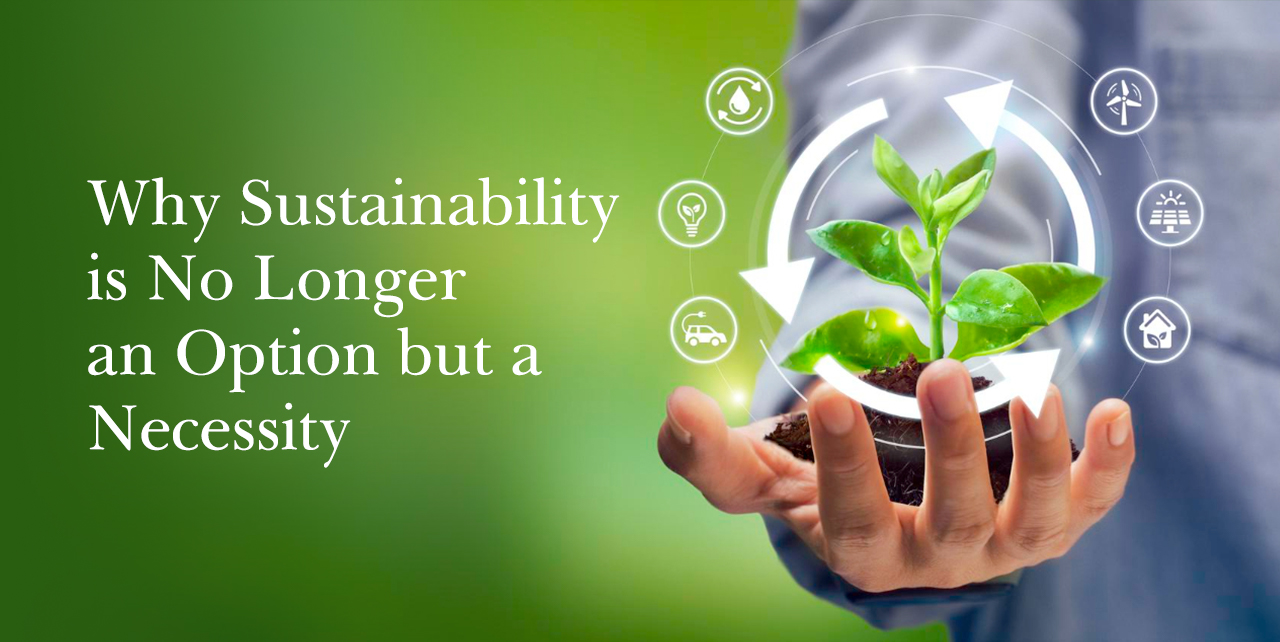Sustainability has evolved from a feel-good initiative to a non-negotiable business strategy. For Small and Medium Enterprises (SMEs) and large corporations, embedding Environmental, Social, and Governance (ESG) principles is now essential to stay competitive, compliant, and resilient in a rapidly changing world.
Why Sustainability Is Essential Today for Business Success
Modern businesses face growing pressure from all sides, like governments, consumers, investors, and internal stakeholders. Here’s what’s driving the urgency:
- Stricter Regulations
Governments worldwide are enforcing ESG-related laws. The EU’s Corporate Sustainability Reporting Directive (CSRD), for instance, mandates companies to disclose their ESG performance transparently or face penalties and limited market access.
- Changing Consumer Expectations
Today’s customers want more than just products, they want values. According to PwC, 83% of consumers expect businesses to actively shape ESG best practices, and 76% would cut ties with companies that don’t.
- Investor Demands
Investors now use ESG criteria as part of risk assessment and decision-making. Businesses with strong sustainability strategies often enjoy better access to capital and improved valuation.
- Operational Advantages
Sustainability is economical in the long run. From energy savings to waste reduction, sustainable practices enhance operational efficiency and profitability.
The Role of Leadership and Governance in ESG
Effective ESG strategies start at the top. Without leadership buy-in, even the best sustainability plans can lose impact.
Vision-Driven, Ethical Leadership
True ESG commitment begins with leadership. When sustainability is embedded into company values, culture shifts naturally follow. Ethical leaders inspire employees and shape long-term thinking.
Active Board and Executive Involvement
Boards must oversee ESG goal-setting, resource allocation, and accountability. Governance structures like sustainability committees or sustainability officers help keep ESG on the agenda.
Clear Policies & Internal Controls
Good governance requires concrete policies: from sourcing to employee rights to emissions. These should be monitored using internal audits and ESG key performance indicators (KPIs).
Stakeholder Engagement
Transparency builds trust. Engaging employees, customers, investors, and communities ensures alignment between business goals and societal values.
Proactive Risk Management
From climate risk to regulatory exposure, ESG governance helps companies identify threats early and respond with resilience.
Building a Practical Sustainability Roadmap
A sustainability roadmap guides companies from intention to execution. Here’s a step-by-step framework:
1. Baseline Assessment
Start by evaluating current environmental and social impact. Tools like ESG diagnostics or maturity assessments help identify focus areas.
2. Set SMART Goals
Define Specific, Measurable, Achievable, Relevant, and Time-bound objectives. Align these with global benchmarks like the UN Sustainable Development Goals (SDGs), national climate goals, or ESG investor criteria.
3. Develop a Clear Strategy
Your roadmap should lay out immediate actions and long-term ambitions. Identify quick wins and larger transformation areas.
4. Engage Employees and Culture
Sustainability is a team effort. Train staff, foster ownership, and embed ESG thinking into daily operations. SMEs can empower staff champions; larger firms can form green taskforces.
5. Track Progress and Report Transparently
Publicly sharing your progress builds credibility and trust. Use dashboards, ESG software like Enablon, Diligent ESG, and Sustain.Life. Adopt reporting frameworks like to monitor KPIs and adjust strategies.
- GRI (Global Reporting Initiative): For broad sustainability disclosures.
- SASB (Sustainability Accounting Standards Board): For industry-specific metrics.
- TCFD (Task Force on Climate-related Financial Disclosures): For climate risk reporting.
- CDP (Carbon Disclosure Project): For environmental impact transparency.
6. Scale, Innovate, and Future-Proof
Pilot new technologies, explore the circular economy, and develop sustainable products. As your capabilities mature, scale successful initiatives and integrate sustainability deeper into the business model.
Sustainability isn’t just about compliance or reputation anymore. It’s a growth enabler. Businesses that act today will be better positioned to attract investors, win customer loyalty, and lead in a purpose-driven economy.
The question is no longer if you should start, but how soon?
Sources:
ESG services and strategies | PwC Mauritius.
Sustainability Is No Longer an Option but the Only Way Forward for Businesses.
Why Sustainability Is Critical For Business Success In 2025 (And The Data To Prove It)


